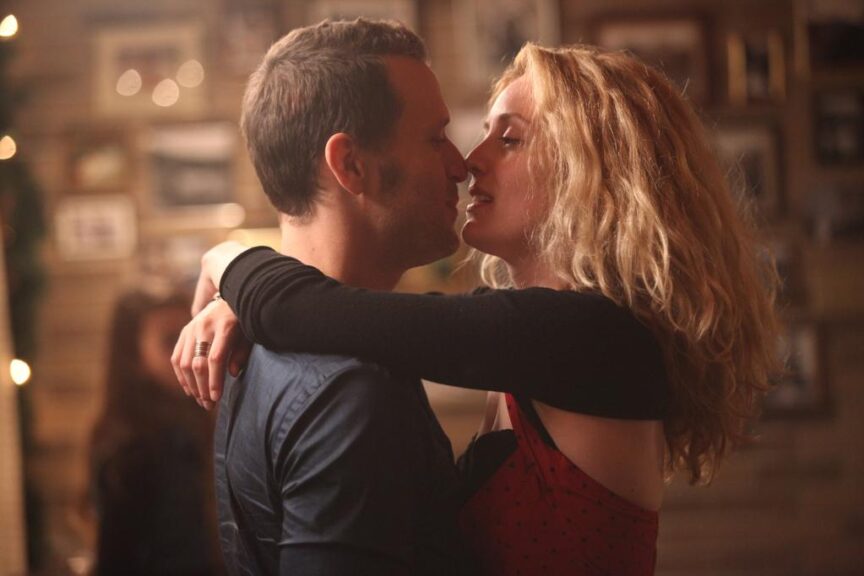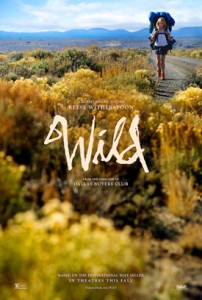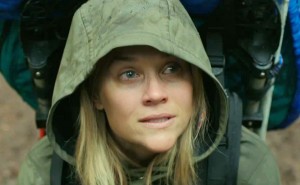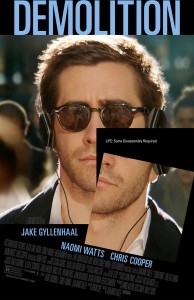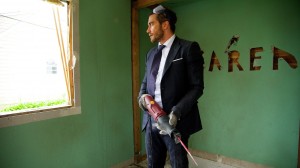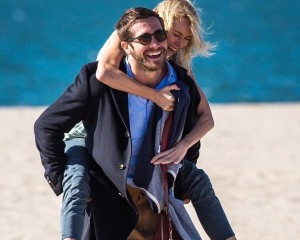I spent most of Monday coming to terms with the news that the wildly talented, Montreal-born filmmaker Jean-Marc Vallée has died at age 58.
He was a deeply humanist, spiritual storyteller, with a real gift for incorporating music in his work — he understood instinctively how to use a song to make his audience feel what he wants them to feel. Next to Martin Scorcese, nobody did it better.
When a cinematic talent passes away my first instinct is to revisit his work, and we’re fortunate because Vallée left a lot, including films going back more than 20 years that I still have to discover.
After making a number of music videos early in his career, his French-language feature debut was called Liste Noir aka Black List, a thriller from 1995, followed by Los Locos, a western with Mario Van Peebles in 1997, and another thriller, Loser Love, in 1999.
It was the queer coming-of-age picture C.R.A.Z.Y. in 2005 that first brought him to a national and international audience, and was the first of his films I had the pleasure of seeing — probably at the Atlantic Film Festival.
It’s about a Montreal teenager, Zac. Set the end of the 1970s he’s coming to terms with his homosexuality and his disapproving father. Zac’s passion for David Bowie is a big part of his self-actualization. It’s a dynamic, frequently hilarious film.
Vallée’s next picture was a British period drama, The Young Victoria, and it might be the oddest picture in his filmography. It’s written by Julian Fellowes, a specialist with tales of British royalty and aristocracy, from Gosford Park to Downton Abbey.
Emily Blunt plays an 18-year-old Queen Victoria as a royal-in-training, the powers-that-be priming and protecting her — mostly her step father and mother, Mark Strong and Miranda Richardson as Sir John Conroy and The Duchess of Kent. Following them are a parade of senior British thesps, including Jim Broadbent as King William, Harriet Walter as Queen Adelaide, and Julian Glover as the Duke of Wellington.
It’s something of a coming-of-age film stuffed in the period drama form, with romance, such as it is, provided with the arrival of Victoria’s cousin, Prince Albert, played by Rupert Friend. The third point of the triangle is Lord Melbourne, the prime minister, played by Paul Bettany.
Everyone wants Victoria’s attention, to share or control her power, and Blunt is typically sympathetic. In that it reminded me a little of Shehkar Kapur’s Elizabeth — not nearly as passionate a piece, but structurally it’s not dissimilar. The problem is that not much happens. I’ll paraphrase David Simon, who said something to the effect that every story needs either sex or death to compel, and unfortunately this has neither — at least not until very late in the running. But still worth seeing for the performances and for what Vallée brings to what must have been a work-for-hire project. Everything he did after this would manifest his distinct vision in a much more personal way.
Café de Flore arrived in 2011, and floored me.
The film presents a double narrative — one story about a fractured family in present-day Montreal, a superstar DJ (Kevin Parent) with kids and a new wife (Evelyne Brochu), and his challenging relationship with his ex (Hélène Florent). Then there’s the second story, about a woman in Paris (Vanessa Paradis) in the 1960s struggling to raise her son as a single mother.
The two tales are connected by a single musical track in multiple variants, and Vallée challenges us to solve the mystery of further connection. But that’s not the only piece of music in the film’s soundtrack — it’s filled with sound and song. It’s the finest use of Sigur Ros in feature film, I’d offer.
What Café de Flore does so well is explain — in a most fundamental way — how music becomes a part of our lives, how it connects us, and how it can travel through time and affect people equally despite their living generations apart. There’s more to the mystery between these narratives, but I’ll let you discover it on your own.
It was Dallas Buyers Club in 2013 that launched Vallée into the Hollywood stratosphere.
Written by Craig Borten and Melisa Wallack, the film is a moving gallery of gaunt, desperate faces. One of them is Matthew McConaughey’s, who found a new career pinnacle with this film and transformed his physicality to play the part. Oscar came calling and the film was nominated for six, including Best Picture, and won in the acting categories, Best Actor and Best Supporting Actor, for McConaughey and Jared Leto.
McConaughey is Ron Woodroof, a sometime electrician and rodeo bull-rider and all-time gambler and partier who in the mid-1980s was diagnosed with full-blown AIDS and given a month to live. He reads up on the the first efforts to control the epidemic and, a born hustler, isn’t satisfied with the measures the FDA have approved. Finding a source (Griffin Dunne) of a slew of other medicinal treatments down in Mexico, he imports them, starting up the club of the title, providing some hope and comfort for an underserved community of people living with HIV-positive and AIDS diagnoses in Texas.
Jennifer Garner shows up as a local doctor who slowly sees how AZT, a drug repurposed as a way to help AIDS patients, doesn’t really do much to extend their lives. Her white-hat style contrasts nicely with McConaughey’s chaos. Steve Zahn has a nice supporting role as a friendly cop who intercedes on Woodroof’s behalf from time to time. But the most surprising performance is from Jared Leto as Rayon, who is trans. They help Woodroof find customers in the Dallas gay community.
Vallée’s gritty and graceful storytelling propels the story forward in a way that never feels less than authentic. There’s plenty of hand-held camera, but it’s never distracting, and I especially liked the sound design using electronic whines to help communicate some of the discomfort and fear Woodroof is feeling.
Vallée next partnered with Reese Witherspoon for Wild, written by Nick Hornby, adapting the memoir by Cheryl Strayed.
Cheryl (Witherspoon) is recovering from the recent death from cancer of her mother, Bobbi (Laura Dern), with whom she was very close — Bobbi raised Cheryl and her brother as a single mom, rescuing them from their alcoholic and abusive father. Cheryl has also just ended her marriage, which follows months of Cheryl’s flagrant infidelities and heroin use, ostensibly a way for her to self-medicate the grief of her mother’s demise. We get all this against the backdrop of Cheryl’s thousand mile march along the Pacific Crest Trail. She’s underprepared for the toll the desert, forest, and snowcapped landscape delivers on her body and soul.
Vallée’s deliberate and skillful use of music as both emotional gut punches and knitting thematic threads is in full force here: The choice of Simon & Garfunkel’s “El Condor Pasa (If I Could)”, teased repeatedly until a mid-point scene, is the film’s undeniable heartbeat: a song situated both as an Andean folk tune as well as a 1960s signpost, coordinating two spiritual undercurrents in this story — a traditional mountain culture and the idealism of love and community. The echoes of the ’60s are also revisited with a cover of a Grateful Dead track to start the third act.
Other music playing important roles: Bruce Springsteen’s “Tougher Than The Rest”, Portishead’s “Glory Box”, 4 Non-Blondes “What’s Up”, and the classic Lucinda Williams tune, “Something About What Happens When We Talk”. All are perfectly chosen, sometimes existing as hummed under the breath, sometimes as snatches and background, other times playing essential parts in order to forward the story.
I did have some issues with the film related to casting, but it’s so well directed I’d say Wild is still very much worth seeing.
In 2016 Vallée directed Demolition, a Jake Gyllenhaal drama, written by Bryan Sipe.
Gyllenhaal is David Mitchell, an investment banker for whom everything rolls easy, but when his wife dies in a car accident. Davis barely reacts. He goes numb. The film is about how he finds his way to his feelings, his real self, buried under layers and years of repetition and distraction. In some ways Demolition is an ode to mindfulness, to leaning in, and to coming to grips with loss.
When Davis can’t retrieve a bag of M&Ms from a vending machine, he writes to the company to complain, explaining his whole sad story to their customer service department of one: Karen (Naomi Watts), who is touched by what she reads, and reaches out to Davis, creating a tenuous human connection between them.
This quirk-filled script could easily go twee or irritating in a Hollywood high-concept way, but it never does in Vallée’s hands. You never really know where Davis will go with his personal revelations, or how his need to deconstruct everything around him, physical and otherwise, will end up. Nothing about this feels formula, and that’s what makes it work. It’s meandering, and unexpectedly moving.
As usual, one of the things Vallée does unerringly is move between the current day and the past, inserting little moments of flashback within scenes, perfect fragments of time shifting. And his gift with using music is once again on display: Heart’s “Crazy on You,” and Free’s “Mr Big” are two musical signposts that become part of the heartbeat of the film.
After Demolition, Vallée reunited with Witherspoon and Dern on the huge hit, Big Little Lies. I don’t make a habit of reviewing series TV on this blog, but I will say I really enjoyed the show, the first season (where Vallée directed every episode) especially. He also did Sharp Objects, another series very much worth seeing, starring Amy Adams.
The death of Jean-Marc Vallée is a massive loss to Canadian and world cinema. All of his work I’ve seen has been entirely worthwhile — I recommend a deep dive. I’ll be catching up on those early films, and expect I will enjoy the mysteries of Café de Flore for the rest of my life.





